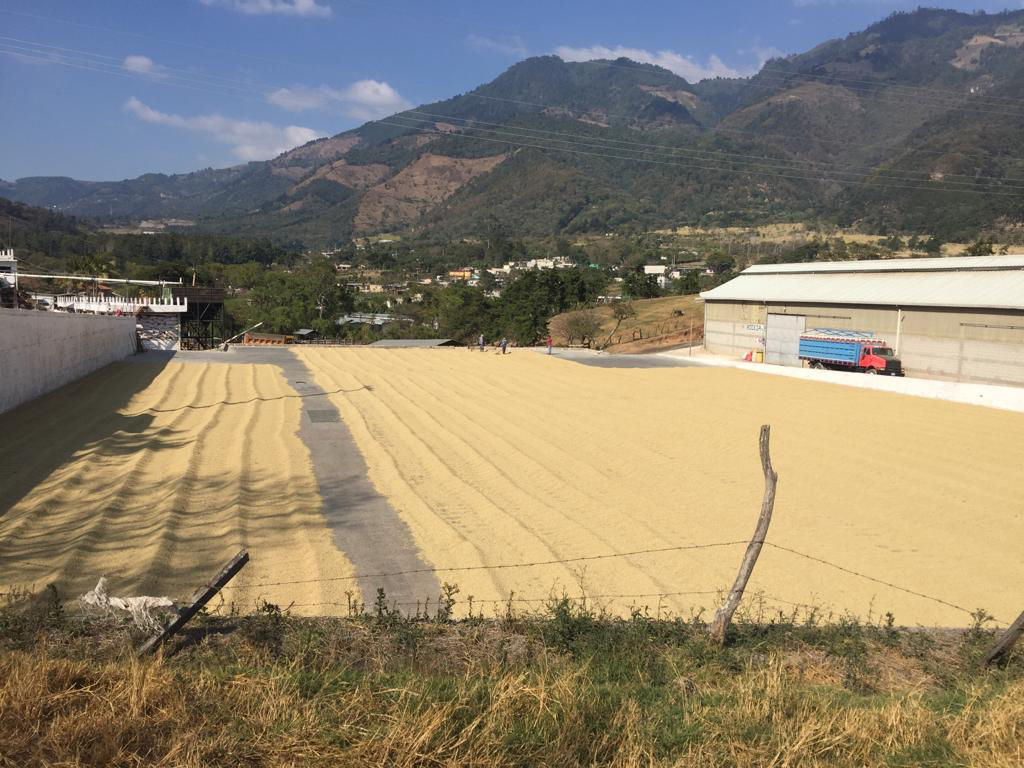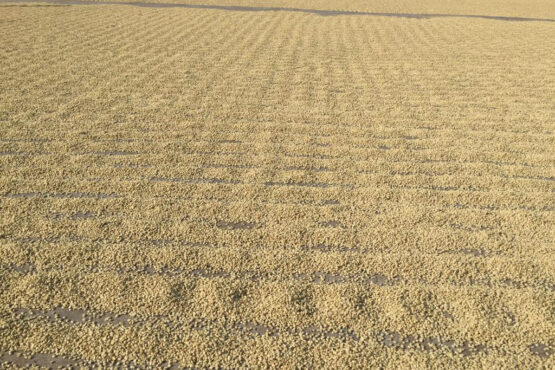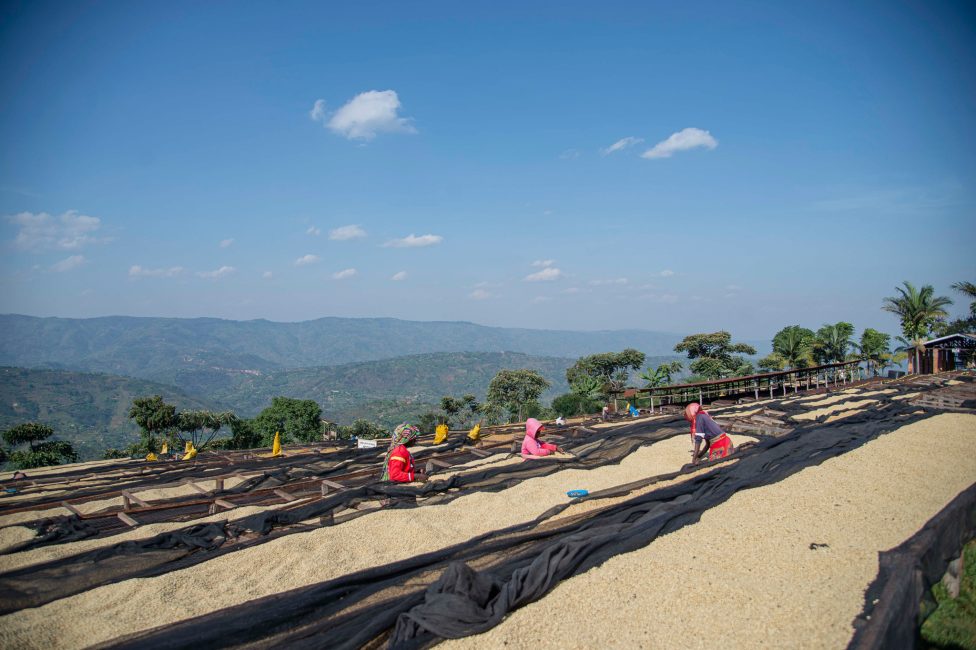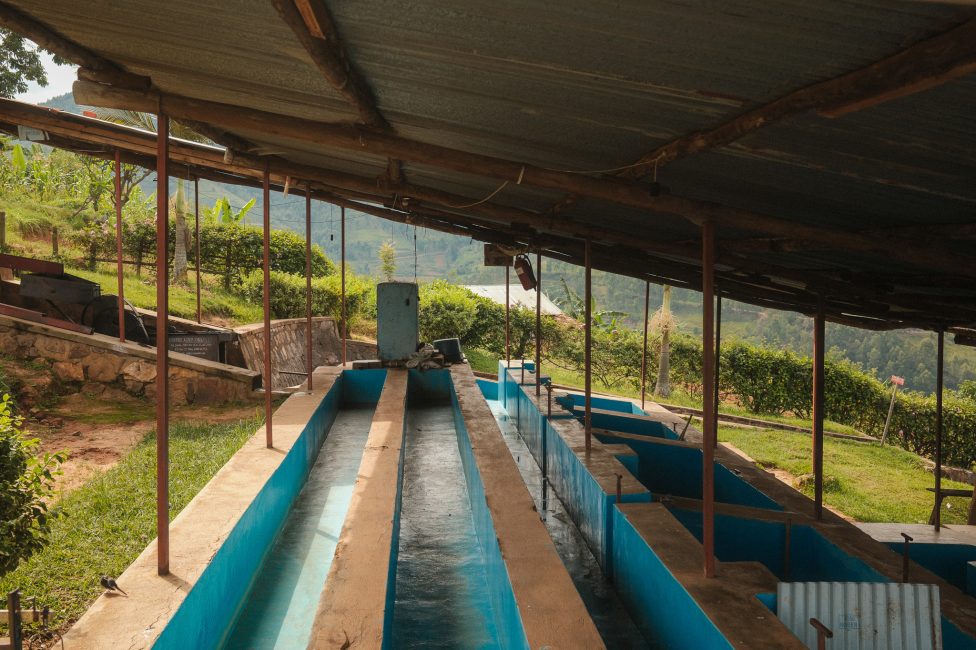El Morito
Condensed milk sweetness, with golden sultana, caramel and toasted almond. Rich and sweet, with great balance and weight.
Finca El Morito is owned and managed by José Roberto Monterosso, and is located in the municipality of Mataquescuintla, about 30km east of Guatemala City, in the department of Jalapa. Mataquescuintla is situated within the coffee growing region of Oriente, one of Guatemala’s most recently established regions. Coffee was first planted there during the 1950s, roughly a century after coffee was grown commercially in Guatemala.
The municipality of Mataquescuintla sits atop a fertile mountainous range and is considered the agricultural hub of the region, thanks to its dense forests, cool climate, and volcanic soils. Whilst this region may not be as renowned for its coffees as areas west of Guatemala such as Antigua, Acatenango and Huehuetenango, it has proven itself capable of producing stellar quality. El Morito is one of the standout coffee farms in the region, having been a finalist in the prestigious Guatemalan Cup of Excellence eight times in the last ten years.
José Roberto first purchased El Morito in the mid-90s, when it only produced large volume lots of conventional varieties, such as Bourbon and Catuaí. Over time, José Roberto and his team realised that innovation would be pivotal to ensure the longevity and sustainability of El Morito. Recognising that the farm has many unique microclimates, the team began planting rarer coffee varietals, such as Pacamara and Gesha on the farm’s higher altitudes, where they had the best chance to thrive without impacting their core business. By producing traditional lots in larger volumes, as well as more exotic and experimental micro-lots, José Roberto began finding greater success across all coffee markets.
A large part of El Morito’s success is due to the conscientious agronomical practices implemented by José Roberto. Because the farm has its own nursery, workers can look after young coffee trees without the use of pesticides and herbicides, with organic materials being the preferred method of fertilisation. Once the trees are ready to be planted in new or existing lots, the team at El Morito are careful to preserve all native trees present. The reason for this is twofold: it protects young coffee trees from direct sunlight and harsh winds, and it allows for the farm to contribute to the region’s efforts in protecting the local flora and fauna, something José Roberto is passionate about. This passion can be seen in the way El Morito is partitioned: of the 672 hectares that make up the property, only 98 are dedicated to coffee growing – with another 51 being used as pasture for José Roberto’s award-winning dairy cattle, and the remaining 524 hectares dedicated to rainforest conservation.
José Roberto also gives great care and attention to the local communities who make up El Morito’s workforce. Not only has he provided support to the building of schools in the region, but he provides ongoing funding to the local fire brigade and the town’s medical services. In 2018, following an eruption at the Fuego volcano that affected over 5,00 coffee families, José Roberto donated a large part of the earnings from that year’s Cup of Excellence lots produced at El Morito to support the victims.
Harvest at El Morito is overseen by José Roberto and chief agronomist Juan José Hernandez. Both men are meticulous about how coffee cherries are picked, as they believe this is the one step that will determine the future of that year’s production. Things get started in January, when the weather is still cool, and end in April, when the heat intensifies. This climatic pattern is another key to the farm’s success: the cooler weather allows for coffee cherries to mature slowly as the harvest begins (leading to cherries with higher sugar content), while the hotter weather creates the kind of conditions necessary for coffee to dry adequately and reach an ideal moisture content when the harvest ends.
Once cherries are picked, they head to the farm’s on-site wet mill to be processed. When it comes to processing, the duo’s aim is to preserve as much of the coffee’s inherent flavour due to varietal and microclimate, rather than to manipulate it. This is where having their own wet mill is pivotal: not only does it reduce operating costs, but it also gives José Roberto and his team complete autonomy of how each lot of coffee is treated. The particular lot of El Morito we have on offer is fully washed, like most coffees that come out of Guatemala; though the team are also known as experts in natural, pulped natural, and other experimental methods of processing. Once sorted and weighed, cherries are depulped before spending time fermenting in concrete water tanks. The resulting coffee beans are then washed, sorted by density in long channels, and then dried on large concrete patios.



